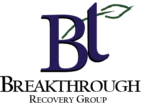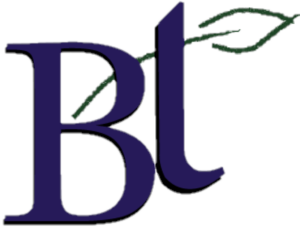Addiction Services
Often addiction occurs in an attempt to self-medicate due to some other underlying distress. Childhood trauma, psychiatric imbalance, physical pain, toxic relationships, existential crisis, personality disorders, unresolved grief, internalized shame, and other factors can all contribute to underlying distress.
However, true recovery entails more than simply detoxing the person from the substances or the addictive behavior; it also entails identifying and treating the issues that led to the self-medication, as well as empowering the struggling individual and providing them with the necessary tools to live a more meaningful, healthy and full life.
Levels of Care
We are a premier provider of evidence-based addiction treatment with programming for multiple levels of care to accommodate for the different stages of one’s recovery journey. All of our treatment programs are comprised of individualized treatment planning services.
PHP
Partial Hospitalization Program
Our Partial Hospitalization Program is our most intensive program and is designed to provide support to those struggling with mental health and/or substance use who do not currently require 24-hour care to manage these challenges. Programming is individualized and will run 4 to 6 hours per day, 5 to 6 days per week depending on the needs of the client. This program is appropriate for clients transitioning out of residential or inpatient treatment and are enduring the difficult process reintegrating into their communities, as well as those who require extra daily support while living at home.
IOP
Intensive Outpatient Program
Our intensive outpatient program is designed to help client’s that are struggling with substance use and/or mental health achieve and maintain sobriety while remaining in their work and home environments. Treatment consists of 3-hours of programming per day for a minimum of 3-days per week. We provide both morning and evening programming which allows us to tailor the program to fit the needs and schedule of our clients.
OP
Outpatient
Outpatient services are designed to support abstinence and ongoing recovery as patients manage demands of work, relationships, family, and recovery with minimal disruption to their daily lives. Clients will begin by attending 2 groups per week and will transition down from there.
What We Treat
Alcohol Addiction
Alcohol addiction, often known as alcoholism, develops when a person has a strong need to use alcohol despite the negative consequences. There are two facets to alcohol addiction, one being the physical dependence on alcohol and the other being the psychological addiction to the use of alcohol. There are many different signs, both physical and psychological, of alcohol abuse and can negatively impact multiple areas of a person’s well-being.
- Drinking larger amounts than before
- A decrease in self-care
- Substantial changes in weight
- Spending more time recovery from the effects of alcohol
- Spending more money or energy to get and consume alcohol
- Anxiety, new or worsening
- Memory problems, trouble with attention and concentration
- Rapid changes in mood
- Increase in irritability, aggression and anger
- Failure to follow through with duties and responsibilities
- Isolation from family and friends
- Increase in conflicts with family, friends, or at work
- Decline in work, school, or sports performance
- An increase in lying
Heroine & Opiate/Opioid Addiction
Opiates and opioids are highly addictive substances in all of their many forms. The two terms have slightly different meanings but both play on the same brain receptors and have the same effects on the central nervous system. Opiates are naturally derived from the opium plant, while opioids are man-made and are either partly or entirely synthetic. However, both have historically been prescribed to relieve pain and prolonged use can lead to abuse, addiction, and even physical dependence. Opioid addiction has affected the lives of millions of people as it was responsible for over 70% of fatal overdoses that occurred in 2019.
- Hydrocodone
- Oxycodone
- Dilauded
- Codeine
- Morphine
- Fentanyl
- Heroin
Marijuana Addiction
The idea that marijuana is a harmless and safe drug is a narrative that many would have you believe. However, the use of marijuana can lead to the development of marijuana use disorder which stems from problem use, and in which in sever cases can take on the form of addiction. According to recent studies, 30 percent of marijuana users may have some form of marijuana use disorder. In addition, marijuana users that begin their use under the age of 18 are four to seven times more likely than adults to develop a marijuana use disorder. Those who attempt to stop use often feel withdrawal symptoms shortly after doing so. These symptoms can include; irritability, difficulties with mood and sleep, craving, loss of appetite, restlessness, and several other forms of physical discomfort.
Amphetamine Addiction
Amphetamines are stimulants that make people alert and awake but can also cause a feeling of euphoria. They are most commonly prescribed to help people manage their ADHD, but they, like so many other drugs, can lead to addiction if they’re misused. People who use these medications frequently are more likely to develop an addiction. These medications have the ability to alter the brain’s structure, and such changes in the brain can have long-term consequences. There can also be deadly consequences from mixing amphetamines with other drugs, especially depressants such as alcohol or Xanax. Several common name brand amphetamines include Adderall, Ritalin, Dexedrine, ProCentra. However, most people with a prescription use a generic version.
Our Addiction Treatment Includes
- Dialectical Behavioral Therapy (DBT)
- Cognitive Behavioral Therapy (CBT)
- Motivational Interviewing
- Relapse Prevention


